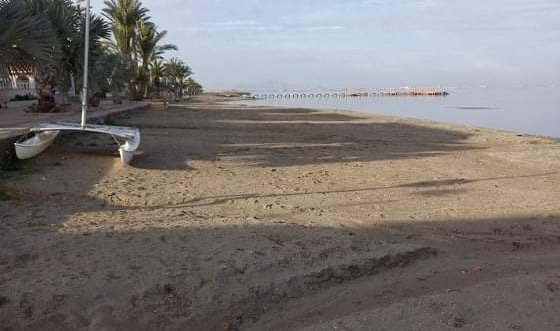Driving in Spain - UK GOV WEBSITE
If you live in Spain and have a valid UK driving licence, this will be recognised for driving in Spain until 30 June 2021.
If you wish to exchange your UK licence for a Spanish one, the process to follow depends on whether you registered your intention to exchange with the Spanish Traffic Authority (DGT) before 30 December 2020.
If you registered with the Spanish Traffic Authority (DGT) before 30 December 2020If you were resident in Spain before 1 January 2021 and registered with the DGT before 30 December 2020, you should request an appointment with the DGT to exchange your UK licence by 30 June 2021.
To exchange your licence you will need:
- proof you are registered as a resident in Spain (eg. TIE – Tarjeta de Identidad de Extranjero; green EU residence certificate)
- your UK licence
Read DGT’s guidance on how to get an appointment (in Spanish with English translation).
The DGT will exchange your UK licence for a temporary driving permit (‘autorización temporal para conducir’) until your Spanish licence is processed. This document is valid in Spain only.
If you did not register with DGT before 30 December 2020If you did not register with DGT before 30 December 2020 and wish to exchange your UK driving licence, you should follow the DGT process for non-EU nationals. This includes taking a driving test.
The UK government is in discussion with the Spanish government on future driving licence exchange without the need for a practical test. Sign up for email alerts to this page, to get notified of our updates on changes to the rules.
Your valid UK licence will continue to be recognised in Spain until 30 June 2021.
Driving in the UK with a Spanish licenceYou can use your Spanish licence in the UK for short visits, or exchange it for a UK licence without taking a test. We will update this page if there are any changes to the rules, as soon as information is available.
Lost, stolen or expired UK licencesIf you live in Spain, you will not be able to renew your driving licence in the UK. If your UK licence is lost, stolen or expired, you will need to apply to the Driver and Vehicle Licensing Agency (DVLA) for a ‘certificate of entitlement’ to be able to apply for a Spanish driving licence.
For information on driving in Spain, read our guidance on:
Bringing a UK-registered vehicle to SpainRead our guidance on taking a vehicle out of the UK.
Article continues below
If you register as a resident or spend longer than 6 months of the year in Spain, you must register your vehicle with the Spanish authorities and you may need to pay some taxes.
You may be exempt from some of these taxes. If so you will need certificates of exemption.
Working in Spain
If you were legally resident in Spain before 1 January 2021, you have the right to work, as long as you remain legally resident.
Read the Department for International Trade’s guidance on:
and sign up for their updates.
If you are planning to come to Spain to work, you may need a visa or permit. You should check with the Spanish Embassy in the UK.
To apply for a job, you may need to provide a:
- UK criminal records certificate
- Spanish criminal records certificate (Certificado de Antecedentes Penales)
- certificate from the Spanish sex offenders registry (Certificado de Delitos de Naturaleza Sexual) to work with children
- record of your employment history in Spain from Seguridad Social (a Vida Laboral certificate)
If you live in Spain and were regularly commuting to work in another EU or EFTA country, before 1 January 2021 you may need a permit to show that you are a frontier worker. You should also check that you are correctly registered for residency.
Article continues below
Money and tax
The UK has a double taxation agreement with Spain to make sure that you do not pay tax on the same income in both countries. You can ask the relevant tax authority about double taxation relief.
Existing double taxation arrangements for UK nationals living in Spain have not changed.
As a Spanish resident, you must declare your global income to the Spanish authorities, no matter which country it came from. If you are not a resident, you will only pay tax on income that came from Spain.
Read guidance about:
You should get professional advice on paying tax in Spain. You can use a registered ‘gestor’ or find an English-speaking lawyer.
Declaration of overseas assetsYou may need to file an annual declaration of overseas assets called a Modelo 720. There are severe penalties if you do not file, or give incorrect or incomplete information.
National InsuranceFind out if you need to pay National Insurance in the UK or social security contributions in Spain.
BankingWhether UK banks can provide service to customers living in the EEA is a matter of local law and regulation. Your bank or finance provider should contact you if they need to make any changes to your product or the way they provide it. If you have any concerns about whether you might be affected, contact your provider or seek independent financial advice.
Read the Money and Pension Service guidance on banking, insurance and financial services changes for more information on cross-border banking.
Pensions
Read our guidance on entitlement to UK benefits and pensions while you are living in Spain.
Article continues below
You will need to tell the UK government offices that deal with your benefits, pension and tax if you are moving or retiring abroad.
If you retire in Spain, you can claim:
- your UK State Pension or new UK State Pension
- your Spanish and UK State Pension from the Instituto Nacional de la Seguridad Social if you were living in Spain before 1 January 2021
- pensions from working in other EU countries
Read the Money and Pension Service guidance on pension and retirement changes for more information on cross-border pensions.
Life Certificates for UK State PensionsIf you get a life certificate from the UK Pension Service, you need to respond as soon as possible. Your payments may be suspended if you don’t.
Benefits
Read our guidance on entitlement to UK benefits and pensions while you are living in Spain.
You will need to tell the UK government offices that deal with your benefits, pension and tax if you are moving or retiring abroad.
Check which benefits you can claim while abroad and how to claim them.
Many income-related benefits such as pension credit and housing benefit cannot be paid to you if you’re abroad for more than 4 weeks.
Spanish benefitsYou may be entitled to Spanish benefits. To find out if you are entitled to Spanish benefits and how to claim, you can:
- speak to a social worker (trabajador social) at your local town hall (in Spanish) (ayuntamiento)
- visit your nearest Instituto de Mayores y Servicios Sociales office (in Spanish)
You can request proof of the time you’ve worked in the UK from HMRC if you are asked for this.
Article continues below
Voting
You can vote and stand in local elections in Spain once you have been resident for 3 years. To do so, you must:
- register on the municipal register where you live (padrón municipal)
- formally declare your intention to vote and register on the local electoral roll
- reconfirm your registration on the electoral roll ahead of each election within the deadline set by the electoral authorities
Read the Spanish government’s guidance on voting in local elections. You can also read the bilateral agreement between the UK and Spain on voting rights (in Spanish).
You cannot vote in general or regional elections in Spain or European Parliamentary elections.
You may be able to vote in some UK elections. You can:
Births, deaths and getting married
If your child is born in Spain, you will need to register the birth abroad.
If someone dies in Spain you can:
- read our guidance on what to do after someone dies abroad
- read guidance for UK nationals on bereavements in Spain
- find a list of English-speaking funeral directors in Spain
Find out how you can get married abroad.
Find out about notarial and documentary services for British nationals in Spain.
Accommodation and buying property
Read guidance on how to buy or let property in Spain.
Pets
If you have a pet passport issued by Spain or another EU member state, you can use it to travel with your pet to Great Britain and elsewhere in the EU.
A GB-issued EU pet passport is not valid for travel to the EU or Northern Ireland. You should speak to your vet before you travel to get the necessary pet travel documents and ensure you’re compliant with the EU Pet Travel Regulations.
Read guidance on:
- bringing your pet to GB
- travelling with your pet in the EU
- travelling to Northern Ireland with your pet
Check the rules of the country you’re travelling to for any additional restrictions or requirements before you travel.
Emergencies
You can dial the European emergency number on 112 or:
- 091 for police
- 061 for health emergencies
- 080 for firefighters
- 092 for local police
If you’re the victim of crime, have been arrested, or are affected by a crisis abroad, contact your nearest British embassy or consulate.
Returning to the UK
Tell the UK and Spanish authorities if you are returning to the UK permanently. To help prove you are now living in the UK, you must deregister with your:
- local town hall (padrón)
- the Spanish National Police (Residencia)
- your local health centre
Check if your tax status will change if you return to the UK.
If you get UK State Pension or benefits payments, you must tell the International Pension Centre and the Instituto Nacional de la Seguridad Social.
If you get healthcare in Spain through the S1 form, you must contact the Overseas Healthcare Team on +44 (0)191 218 1999 or Seguridad Social to make sure your S1 is cancelled at the right time.
Read the guidance on returning to the UK permanently which includes information on, amongst other things, tax, access to services and bringing family members.
DisclaimerPlease note this information is provided as a guide only. Definitive information should be obtained from the Spanish authorities. The Foreign, Commonwealth & Development Office (FCDO) is not liable for any inaccuracies in this information.
You may also want to view this list of useful websites for UK nationals living in Spain.
Published 22 March 2013
Last updated 19 April 2021 + show all updates
Contents
Written by


















 Spain Tips and Guides: your complete guide to visiting, living and moving to Spain
Spain Tips and Guides: your complete guide to visiting, living and moving to Spain